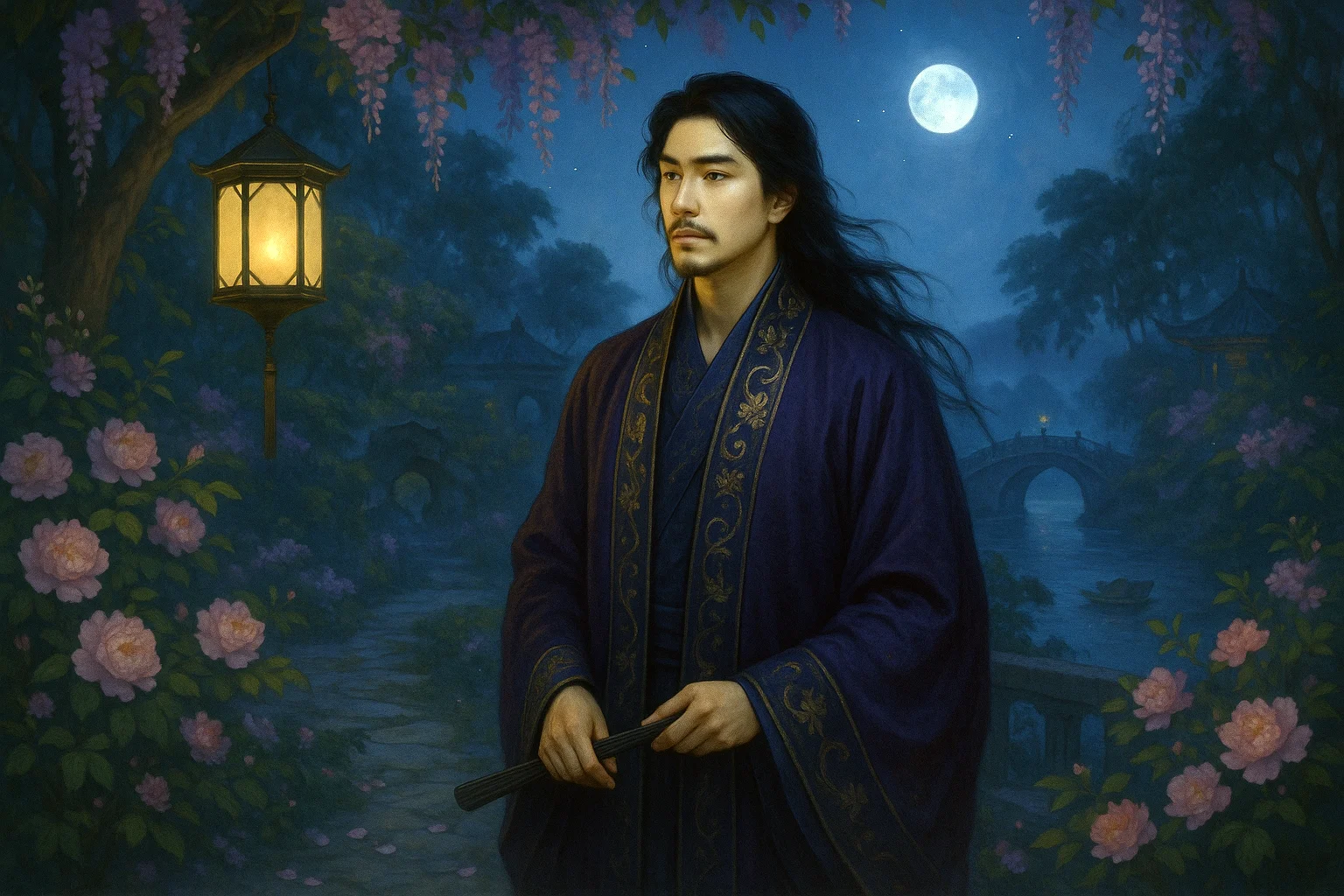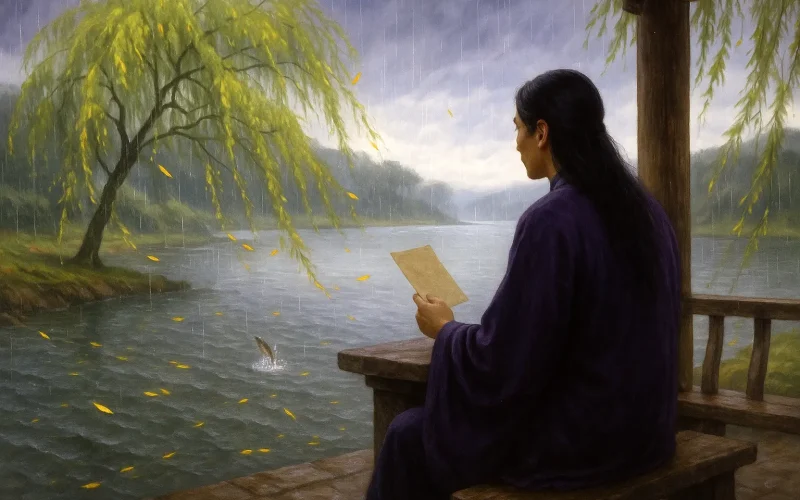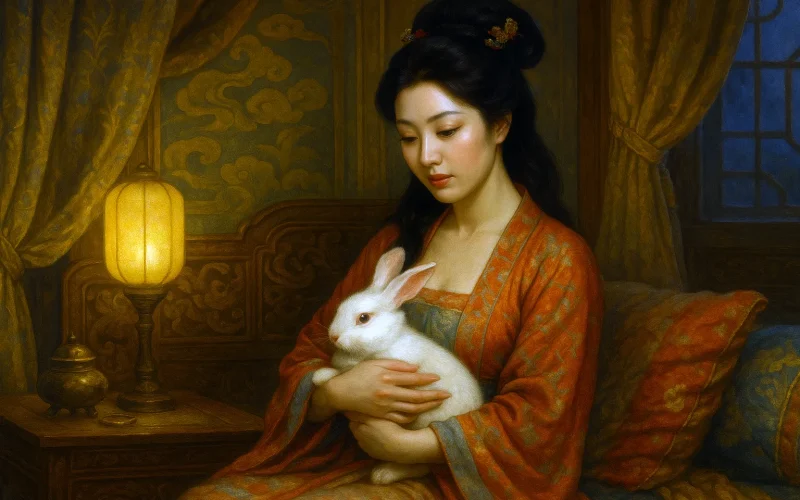I am far from the clouds of Sung Mountain, a long way from trees in Ch'in;
And I send to you a message carried by two carp:
- Absent this autumn from the Prince's garden,
There's a poet at Mao-ling sick in the rain.
Original Poem
「寄令狐郎中」
李商隐
嵩云秦树久离居,双鲤迢迢一纸书。
休问梁园旧宾客,茂陵秋雨病相如。
Interpretation
In the autumn of 845 AD (the fifth year of Huichang era), while observing mourning for his mother in Luoyang, the poet received a letter from his old friend Linghu Tao and responded with this poem. It expresses cherished memories of their profound friendship while lamenting his own rootless existence and unrecognized talents. Linghu Tao, son of Linghu Chu who had mentored Li Shangyin in his youth, had been instrumental in helping the poet pass the imperial examinations. However, their relationship grew distant due to changes in marital connections. This unexpected correspondence stirred deep emotions in the poet, inspiring this composition.
First Couplet: "嵩云秦树久离居,双鲤迢迢一纸书。"
Sōng yún Qín shù jiǔ lí jū, shuāng lǐ tiáotiáo yī zhǐ shū.
Clouds over Song Mountain, trees of Qin - symbols of our long parting, Two carp carry your precious letter through the miles.
The poet paints a delicate landscape of separation - the clouds of his Luoyang retreat mirroring the distant trees of Chang'an where his friend resides. The imagery of fish-carried letters evokes the cherished tradition of correspondence, transforming simple words into treasured gifts across the divide.
Second Couplet: "休问梁园旧宾客,茂陵秋雨病相如。"
Xiū wèn Liáng yuán jiù bīnkè, Màolíng qiūyǔ bìng Xiàngrú.
Speak not of that honored guest in Liang's grand halls, Now but an ailing scholar in Maoling's autumn squalls.
With elegant melancholy, the poet contrasts past glory with present solitude. The reference to Sima Xiangru - the brilliant Han dynasty poet who died in obscurity - becomes a mirror for his own faded fortunes, where once-welcomed talent now shivers in the rain of neglect.
Overall Appreciation
Like ink dissolving in water, the poem's beauty emerges gradually - first sketching physical separation through mountain clouds and distant trees, then revealing the emotional landscape through layered memories. The arrival of the letter becomes an emotional fulcrum, balancing past camaraderie against present isolation with exquisite restraint.
Writing Characteristics
- Landscape of Emotion: Natural elements transform into emotional cartography - clouds and trees mapping distance, autumn rain measuring solitude
- Silent Eloquence: The unspoken resonates louder than words - the folded letter's journey speaks volumes, the avoided questions reveal deepest wounds
- Brushstrokes of Time: Two couplets contain lifetimes - from vibrant youth in intellectual salons to the whispering sorrow of unrecognized genius
Insights
This quiet masterpiece reminds us how the most profound communications often arrive in silence - in the space between words, in memories too precious to name directly. The poet teaches us the art of dignified sorrow, where personal grief becomes universal through the alchemy of perfect imagery. Like the letter carried by symbolic fish, his verses traverse centuries to deliver their emotional truth intact.
Poem translator
Kiang Kanghu
About the poet

Li Shangyin (李商隐), 813 - 858 AD, was a great poet of the late Tang Dynasty. His poems were on a par with those of Du Mu, and he was known as "Little Li Du". Li Shangyin was a native of Qinyang, Jiaozuo City, Henan Province. When he was a teenager, he lost his father at the age of nine, and was called "Zheshui East and West, half a century of wandering".












